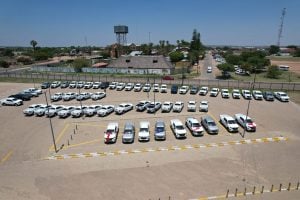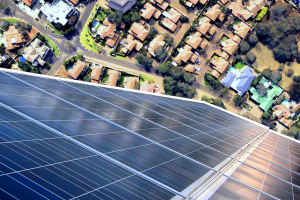R350 relief grant extended to 2025

Finance minister Enoch Godongwana says that National Treasury will be reining in government spending to help fill a growing budget gap – but that does not mean the taps are closing.
Tabling the medium-term budget on Wedensday (1 November) the minister said that spending has been revised down by R21 billion in the current financial year.
Further reductions of R64 billion in 2024/25 and R69 billion in 2025/26 have also been proposed.
Godongwana said that the implications of these adjustments will be partially offset by departments implementing the cost containment guidelines issued by the National Treasury.
It will also be offset by implementing control measures on payroll systems in line with the directive issued by the Department of Public Service and Administration, as well as implementing the recommendations from the spending reviews conducted in the past two fiscal years, he said.
However, despite the cuts, the government has made a “strategic decision” to allocate funds to sectors that are personnel heavy, such as Health, Education and Police Services.
This includes adding funding of R24 billion in 2023/24 and R74 billion over the medium term (through 2025/26) to be used to fund the 2023/24 wage increase and the associated carry-through costs in these sectors.
R34 billion is allocated to extend the Covid-19 Social Relief of Distress grant by another year.
“Over the medium term, a provisional allocation is retained while a comprehensive review of the entire social grant system is finalised,” he said.
The grant was introduced to support low-income individuals affected by the lockdowns during the Covid-19 pandemic and has been extended several times.
“Government proposes that the fiscal framework make provision for funding for the grant for 2024/25. Beyond this, a comprehensive review of the entire social grant system by the Department of Social Development and the National Treasury is required,” Godongwana said.
Over the 2024 medium-term expenditure framework (MTEF) period, 61% of consolidated non-interest spending goes to the social wage — combined public spending on health, education, housing, social protection, transport, employment and local amenities.
“Of this amount, R945.9 billion will be spent on social protection transfers, including the old age grant, the child support grant, the disability grant and the Covid-19 social relief of distress grant. South Africa’s social protection expenditure programme, measured as a percentage of gross domestic product (GDP), is one of the largest among developing countries,” he said.
The 2019 MTBPS noted that by 2040/41, social assistance beneficiaries – excluding the temporary Covid-19 social relief of distress grant – were projected to increase to 22.5 million, necessitating spending on social grants amounting to 3 % of GDP annually.
“This is in line with current grants spending, excluding the temporary grant. If that or a similar type of new grant is made permanent, beneficiaries are projected to expand from 27.3 million in 2023/24 to 40.4 million in 2040/41, which will cost 3.8 % of GDP in 2040/41 and require a corresponding permanent source of funding, such as additional revenue measures,” he said.




















